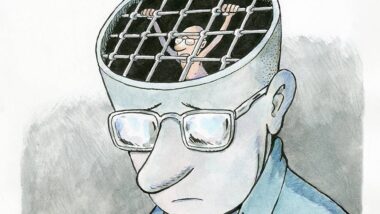Im April diesen Jahres wurde in Tansania ein Cybercrime Gesetz beschlossen, der Präsident Jakaya Kikwete unterzeichnete es im Mai. Es soll helfen, gegen Kinderpornografie, Cybermobbing, rassistische und xenophobe Inhalte, unerwünschte Nachrichten (Spam), illegales Abhören und das Veröffentlichen falscher Informationen vorzugehen. Gegen alle Kritik von Opposition und Aktivist_innen wurde das Gesetz im Schnelldurchlauf angenommen. Nun werden zwei Männer zum ersten Mal unter dem neuen Gesetz angeklagt.
Benedict Angelo Ngonyani wird beschuldigt, auf Facebook Informationen veröffentlicht zu haben die „falsch oder nicht von relevanten Behörden geprüft“ waren. Er hatte geschrieben, dass der Führer der Streitkräfte, General Davis Mwamunyange, vergiftet wurde und sich in einem Krankenhaus befindet. Der Staatsanwalt wirft Ngonyani vor, die falschen Informationen willentlich veröffentlicht zu haben und damit die Öffentlichkeit in die Irre führen zu wollen. Am 23. Oktober steht Ngonyani vor Gericht, bis dahin bleibt er in Polizeigewahrsam. Sospiter Jonas wird „Missbrauch des Internets“ vorgeworfen, er hatte ebenfalls auf Facebook geschrieben, dass der tansanische Ministerpräsident Mizengo Pinda „nur ein Gospel Prediger wird“. Beide Männer sollen damit gegen Artikel 16 des Cybercrime Act (PDF) verstoßen haben, der das Veröffentlichen falscher Informationen verbietet:
16. Any person who publishes information, data or facts presented in a picture, text, symbol or any other form in a computer system where such information, data or fact is false, desceptive, misleading or inaccurate commits an offence, and shall on conviction be liable to a fine not less than three million shillings or to imprisonment for a term not less than six months or to both.
Drei Millionen Tansania-Schilling entsprechen etwa 1.800 Euro, das Bruttoinlandsprodukt pro Kopf beträgt in Tansania 890 Euro.
Aidan Eyakuze und Ben Taylor von der Initiative Twaweza kritisieren, dass das Gesetz zu einer Atmosphäre der Angst führe und der Polizei zu viel Macht gebe:
The bill makes it an offence to publish any information online that is „false, deceptive, misleading or inaccurate“. In future, if we make a mistake in a survey report or blogpost – or even make a statement that is considered „misleading“ – we could be in line for time in prison.
Further, the bill gives even very junior police officers the power to search and/or seize any computer equipment or data, including the content of messages, with no meaningful justification required or oversight provided. This includes demanding information from internet service providers and mobile phone networks.
Im Zuge der vielen Kritik, die an dem Cybercrime Gesetz geübt wurde, kündigte die tansanische Regierung an, es überarbeiten zu wollen. Die Menschenrechtsorganisation Article 19 legte im Juli eine Analyse des Gesetzes (PDF) vor, inklusive umfangreicher Vorschläge, wie es umgesetzt werden könnte ohne das Recht auf freie Meinungsäußerung zu beschneiden.
Our analysis has identified a number of areas of serious concern from an international law perspective. Our concerns lie not only in relation to content and computer-related offences but also in relation to the lack of adequate procedural safeguards, the Act’s disproportionate and inflexible sanctions regime, and the conveyance of excessive powers to police forces to conduct search and seizure operations without judicial oversight, amongst others.
Nachtrag
Der Journalist Joseph Warungu schreibt bei BBC über die ersten Folgen des Cybercrime Gesetzes:
It’s hard to see how the authorities in Tanzania will stop its population from sharing crude jokes, ethnic stereotyping and images of their politicians, which have been photo-shopped to depict them as different creatures, including man-eating mermaids.
It’s much harder to see how Tanzanians will be weaned off their addiction to sharing their lives with the world online – the good, the bad and the outright ugly.





0 Ergänzungen
Dieser Artikel ist älter als ein Jahr, daher sind die Ergänzungen geschlossen.